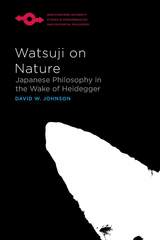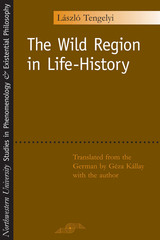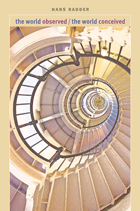5 start with W start with W

In an engagingly lucid and deft analysis, Watsuji on Nature radically expands our appreciation of twentieth-century Japanese philosophy and shows what it has to offer to a global philosophical conversation.

A crystal-clear, scientifically rigorous argument for the existence of free will, challenging what many scientists and scientifically minded philosophers believe.
Philosophers have argued about the nature and the very existence of free will for centuries. Today, many scientists and scientifically minded commentators are skeptical that it exists, especially when it is understood to require the ability to choose between alternative possibilities. If the laws of physics govern everything that happens, they argue, then how can our choices be free? Believers in free will must be misled by habit, sentiment, or religious doctrine. Why Free Will Is Real defies scientific orthodoxy and presents a bold new defense of free will in the same naturalistic terms that are usually deployed against it.
Unlike those who defend free will by giving up the idea that it requires alternative possibilities to choose from, Christian List retains this idea as central, resisting the tendency to defend free will by watering it down. He concedes that free will and its prerequisites—intentional agency, alternative possibilities, and causal control over our actions—cannot be found among the fundamental physical features of the natural world. But, he argues, that’s not where we should be looking. Free will is a “higher-level” phenomenon found at the level of psychology. It is like other phenomena that emerge from physical processes but are autonomous from them and not best understood in fundamental physical terms—like an ecosystem or the economy. When we discover it in its proper context, acknowledging that free will is real is not just scientifically respectable; it is indispensable for explaining our world.


Wilfrid Sellars tackled the difficult problems of reconciling Pittsburgh school–style analytic thought, Husserlian phenomenology, and the Myth of the Given.
This collection of essays brings into dialogue the analytic philosophy of Wilfrid Sellars—founder of the Pittsburgh school of thought—and phenomenology, with a special focus on the work of Edmund Husserl. The book’s wide-ranging discussions include the famous Myth of the Given but also more traditional problems in the philosophy of mind and phenomenology such as the
- status of perception and imagination
- nature of intentionality
- concept of motivation
- relationship between linguistic and nonlinguistic experiences
- relationship between conceptual and preconceptual experiences
Moreover, the volume addresses the conflicts between Sellars’s manifest and scientific images of the world and Husserl’s ontology of the life-world. The volume takes as a point of departure Sellars’s criticism of the Myth of the Given, but only to show the many problems that label obscures. Contributors explain aspects of Sellars’s philosophy vis-à-vis Husserl’s phenomenology, articulating the central problems and solutions of each. The book is a must-read for scholars and students interested in learning more about Sellars and for those comparing Continental and analytic philosophical thought.
Contributors
Walter HoppWolfgang Huemer
Roberta Lanfredini
Danilo Manca
Karl Mertens
Antonio Nunziante
Jacob Rump
Daniele De Santis
Michela Summa

Observation and conceptual interpretation constitute the two major ways through which human beings engage the world. The World Observed/The World Conceived presents an innovative analysis of the nature and role of observation and conceptualization. While these two actions are often treated as separate, Hans Radder shows that they are inherently interconnected-that materially realized observational processes are always conceptually interpreted and that the meaning of concepts depends on the way they structure observational processes and abstract from them. He examines the role of human action and conceptualization in realizing observational processes and develops a detailed theory of the relationship between observation, abstraction, and the meaning of concepts.
The World Observed/The World Conceived will prove useful to many areas of scholarly study including ontology, epistemology, philosophy of language, philosophy of science, science studies, and cognitive science.READERS
Browse our collection.
PUBLISHERS
See BiblioVault's publisher services.
STUDENT SERVICES
Files for college accessibility offices.
UChicago Accessibility Resources
home | accessibility | search | about | contact us
BiblioVault ® 2001 - 2024
The University of Chicago Press









